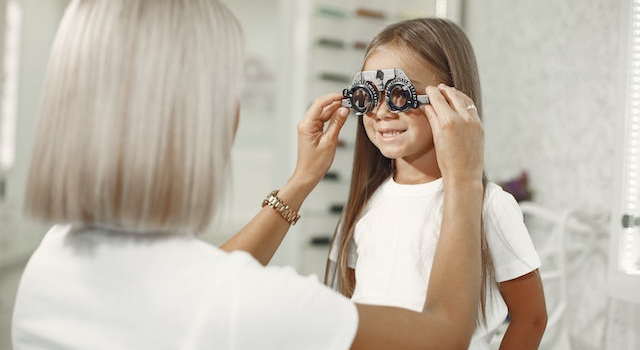
When it comes to eye health, it's essential to understand the difference between comprehensive eye exams and basic vision screenings. While both are essential for maintaining good vision, they serve different purposes and offer varying levels of detail in assessing eye health.
What is Included in a Comprehensive Eye Exam?
A comprehensive eye exam is a thorough evaluation of your eye health and vision by an optometrist or ophthalmologist. Unlike basic vision screenings, which primarily assess visual acuity (how well you can see), comprehensive eye exams delve deeper into the overall health of your eyes.
During a comprehensive eye exam, you can expect:
- A review of your medical history and any symptoms you may be experiencing.
- Visual acuity tests to determine the clarity of your vision.
- Refraction tests to identify any refractive errors, such as nearsightedness, farsightedness, or astigmatism.
- An eye movement test to check for proper eye alignment and muscle function.
- A dilated eye exam examines the retina and optic nerve for signs of damage or disease.
- Tests for eye pressure to screen for glaucoma.
These elements detect potential eye conditions early, allowing for timely treatment and management.
The Benefits of Comprehensive Eye Care at Atlanta Eye Associates
Comprehensive eye care goes beyond just checking how well you can see. It involves a holistic approach to maintaining your eye health. Regular comprehensive eye exams can detect a range of eye conditions early on, including:
- Glaucoma
- Macular degeneration
- Cataracts
- Diabetic retinopathy
Early detection of these conditions is crucial for effective treatment and preventing vision loss. By scheduling regular comprehensive eye exams, you are taking proactive steps to safeguard your eye health and overall well-being.
When Should a Child's Eye Be Examined?
Children should have their first comprehensive eye exam at six months of age, followed by exams at three years old and before starting school. Regular eye exams should continue throughout their school years to monitor their vision and health.
Atlanta Eye Associates offers specialized eye care to ensure your child's vision develops correctly. Our comprehensive eye exams can help detect any issues early, providing treatment to support your child's visual needs.
Signs of Vision Problems in Children
Children's eye health is especially important as their vision development can impact their learning and overall quality of life. Signs of vision problems in children may include:
- Squinting or tilting the head to see better
- Frequently rubbing their eyes
- Complaints of headaches or eye pain
- Difficulty reading or concentrating in school
- Sitting too close to the TV or holding books very close to their face
If you notice any of these signs, scheduling a comprehensive eye exam for your child is essential. Detecting vision problems early allows for easier correction.
Regular Eye Exams for Overall Eye Health in Georgia
Maintaining regular eye exams is vital for everyone, not just children. Adults should have comprehensive eye exams every one to two years, depending on their age, risk factors, and overall health. These exams can identify changes in your vision and detect early signs of eye diseases that might not have noticeable symptoms initially.
By prioritizing comprehensive eye care, you can ensure that your eyes remain healthy and your vision stays clear. Don't wait until you notice problems—schedule your comprehensive eye exam at one of our two locations in Georgia and take the first step towards optimal eye health.

